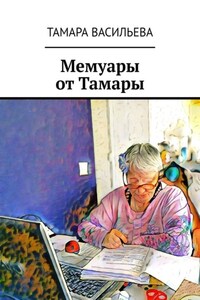Fourth Estate
An imprint of HarperCollinsPublishers
1 London Bridge Street
London SE1 9GF
www.4thestate.co.uk
First published in Great Britain by Fourth Estate in 2005
Published in paperback by Harper Perennial in 2006
Copyright © Alexander Masters 2005
‘Obituary of Stuart Shorter’ copyright © Alexander Masters 2002
Alexander Masters asserts the moral right to be identified as the author of this work.
Front cover photograph: Stuart Shorter as a child
A catalogue record for this book is available from the British Library.
All rights reserved under International and Pan-American Copyright Conventions. By payment of the required fees, you have been granted the non-exclusive, non-transferable right to access and read the text of this e-book on-screen. No part of this text may be reproduced, transmitted, down-loaded, decompiled, reverse engineered, or stored in or introduced into any information storage and retrieval system, in any form or by any means, whether electronic or mechanical, now known or hereinafter invented, without the express written permission of HarperCollins.
Source ISBN: 9780007200375
Ebook Edition © August 2011 ISBN: 9780007374144
Version: 2015-09-18
Stuart does not like the manuscript.
Through the pale Tesco stripes of his supermarket bag I can see the wedge of my papers. Two years’ worth of interviews and literary effort.
‘What’s the matter with it?’
‘It’s bollocks boring.’
He fumbles in the lumpy bulges of his pockets, looking for roll-up papers, then drops into my armchair and pushes his face forward, surveying the drab collection of twigs and dead summertime experiments on my balcony. One arm remains, as it landed, squeezed in beside his thigh. Outside, it is getting dark; the trees in the garden have started to grow in size and lose their untended shapes.
‘I don’t mean to be rude. I know you put a lot of work in,’ Stuart offers.
Put briefly, his objection is this: I drone on.
He wants jokes, yarns, humour. He doesn’t admire ‘academic quotes’ and background research. ‘Nah, Alexander, you gotta start again. You gotta do better than this.’
He’s after a bestseller, ‘like what Tom Clancy writes’.
‘But you are not an assassin trying to frazzle the president with anthrax bombs,’ I point out. You are an ex-homeless, ex-junkie psychopath, I do not add.
Stuart phrases it another way, then: ‘Something what people will read.’
There are numerous types of homeless person:
There are those who were doing all right beforehand, but have suffered a temporary setback because their wife has run off with another man (or, surprisingly often, another woman). Their business may have collapsed. Their daughter has been killed in a car crash. Or both. Self-confidence is their main problem and, if the professionals can get hold of them in the first few months, they’ll be back at work or at least in settled, long-term accommodation within a year or two.
Men outnumber women ten to one on the streets. For women, it is usually sex or battering or madness that has brought them to this condition. They are better at coping with financial failure and betrayal, or their expectations are more self-effacing.
Then there are the ones who suffer from chronic poverty, brought on by illiteracy or social ineptness or what are politely called ‘learning disabilities’. Perhaps they are dyslexic, autistic, shy to the point of inanity, never went to school. They may be just ill or blind or deaf or dumb. They move from garden shed to bedsit, shelter to hostel to garage to friend’s sitting-room floor, to the wheelie bins at the side of King’s College. They are never quite able to rise above their circumstances.
The youngsters who have fallen out with their parents, or have come out of care and don’t know what to do next or even how to make their own breakfast: they’re a third homeless category. If they haven’t, within six months, found a job or a room or a girlfriend to put them to rights, there’s a good chance they’ll be on the streets instead.
Ex-convicts and ex-army – take away the format of their lives and all they can do is crumple downwards. This is just the beginning.
Right at the bottom of this abnormal heap are the people such as Stuart, the ‘chaotic’ homeless. The chaotic (‘kai-yo-ic’, as Stuart calls them, drawing out the syllables around his tongue like chewing gum) are beyond repair. When Stuart was first discovered, Kaspar Hauser-like, crouched on the lowest subterranean floor of a multi-storey car park, the regular homeless wanted nothing to do with him. They called him ‘Knife Man Dan’ and ‘that mad bastard on Level D’.














